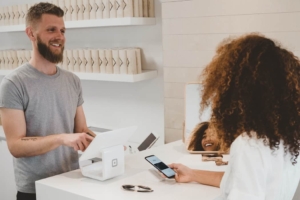
If you’re in sales, customer service, marketing, consulting, running a small business, or work with an agency, or in any kind of customer/client-facing role, it’s likely you’ve heard of the importance of building rapport with clients. But what exactly does it mean to build rapport and why is this important? In this article, we will explore the importance of building rapport, its benefits, and how to foster this type of symbiotic, trusting relationship with clients.
Establishing rapport with clients boils down to one simple, yet crucial concept: Trust. Building trust with clients is a lengthy process, and no easy feat, yet paramount in any kind of business partnership. Putting in the work to build and maintain trust between you and your client is proven to be rewarding in a myriad of ways. Let's unpack them.
Benefits of Building Rapport With Clients
Trust is a difficult thing to build, and an easy thing to lose. The world's most successful businesses focus on building rapport that will allow them to offer a more intuitive product and maintain the trust customers put in them by continuing to invest in the business relationship. Let's explore a few measurable benefits of building and maintaining excellent rapport with your clients.
1. More Sales
A whopping 89% of customers will make a repeat purchase after a positive customer service experience. Customers are more likely to invest in your product when you've invested in your relationship. If you've built rapport with your customer, they will enthusiastically reach out to you again and again for help, advice, and new products or solutions, even if you've yet to deliver results.
2. Better Reputation
A 2020 Walker study found that a great customer experience will trump price and even product quality, differentiating your brand with an immediate reputation for great and long-lasting relationships. Happy and trusting clients are more likely to provide positive reviews of your business, and recommend you to others, giving you the opportunity to win over even more clients.
3. Stand Out From The Competition
While some companies are forced to focus on simply keeping up with trends and staying current, others are taking advantage of the rapport they've built with their clients to work smarter, not harder. Consumers are loyal to both the best products and services, and businesses that value transparency, authenticity, and longevity of customer relationships.
How to Build Rapport With a Client?
Now that we understand a few of the crucial benefits of building excellent rapport with clients, let's discuss a few easy practices you should be implementing to ensure excellent rapport with a customer.
1. Ask Questions
Ask your client rapport-building questions about their personal view of their company and business goals. Listening carefully will give you a clear idea of client priorities, and unique insight into how to meet their needs. Examples of rapport-building questions include a more personal line of questioning like,†I see you attended X university! What did you like best about your time there?†Asking informed questions to build rapport shows the client you are dedicated to offering a tailor-made product and long-lasting relationship and will take their goals to heart – and to the bank.
2. Listen Empathetically
Practice active listening, and make note of keywords, critical issues, and primary goals. By closing your mouth and opening your ears, you are also opening the door for more trusting future communication and a long-lasting relationship, where your customer feels comfortable seeking you out for advice, or future work.
3. Establish Common Ground
Using small talk to find common ground is a great way of establishing rapport with clients, and showing a genuine interest, which is a tough thing to fake! A rapport-building question about a detail of the client blog or website is a great way to demonstrate a common interest in their business and success. Asking open-ended questions will help your client “open up,†and share personal experiences that you might share, for a firm and trusting foundation to your relationship.
4. Mirror & Match
The “mirror and match†technique draws on the truth that we prefer to interact with people who we perceive to be similar to ourselves. What we say is negligible, when our body language and voice portray disinterest or a lack of understanding. The most successful communicators watch and mimic the body language of others, adopt a similar temperament, use similar language, and attempt to match the tone, tempo, and volume of the other person's voice. Science says that employing these methods of connection results in stronger intimacy, trust, and client rapport.
Rapport-building questions are an easy way to make a personal, more long-lasting connection with existing and potential customers. If a company culture of excellent customer relationships sounds like it could benefit your business, contact ListenTrust today, or read on to learn more about how establishing rapport with clients through the use of bilingual customer service can future-proof and globalize your business.
Get Started by Contacting ListenTrust Today!
For more information, contact Tom Sheppard, VP of Business Development, at: tsheppard@listentrust.com.


